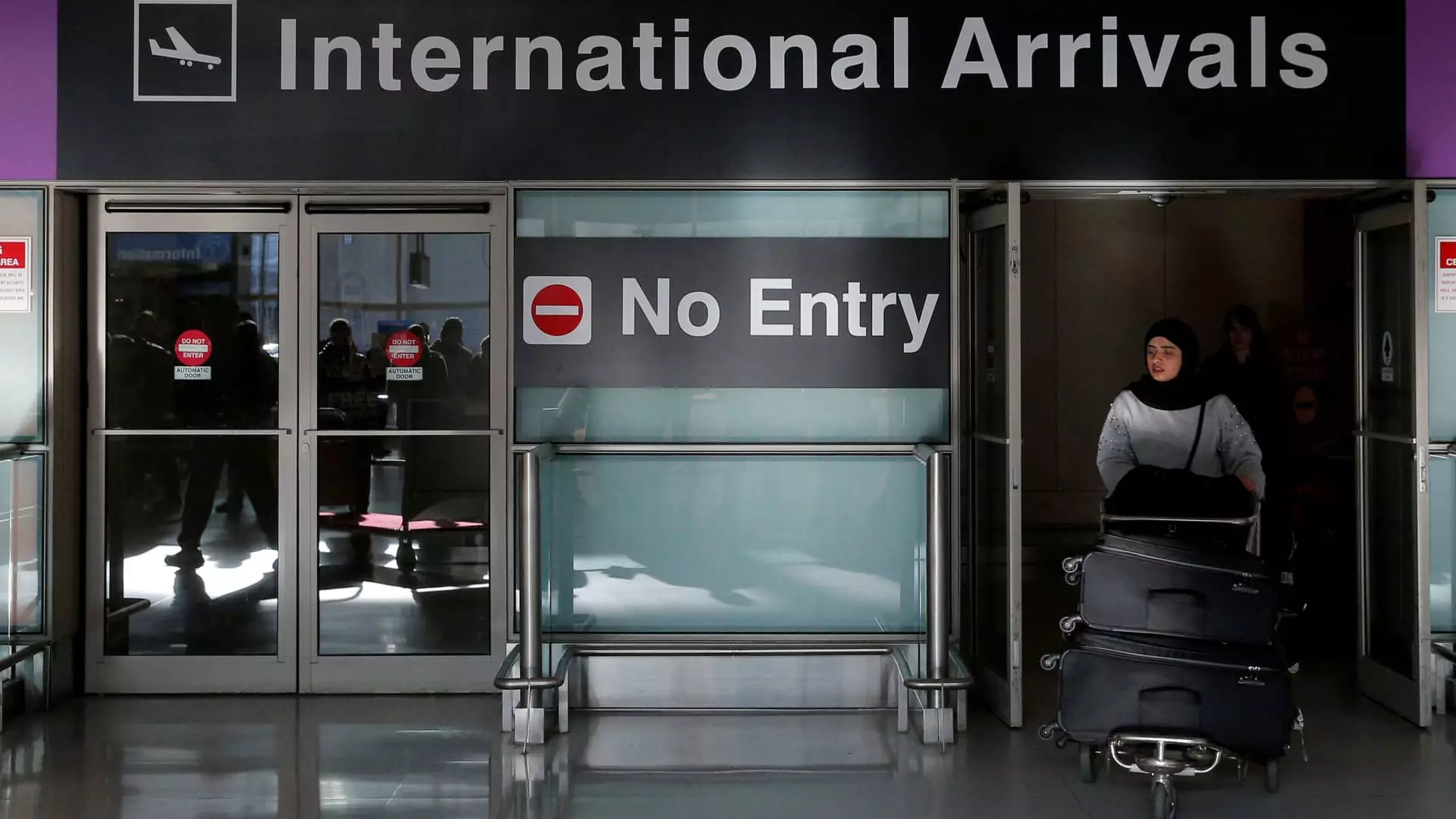President Donald Trump’s latest travel ban, which officially targets twelve countries, primarily in Africa and the Middle East, is a stark manifestation of a deeply troubling trend in American immigration policy. The nations under this new proclamation, such as Afghanistan, Sudan, and Yemen, are not only emblematic of regions ravaged by conflict and instability but also represent millions of individuals striving for a more secure future. This ban, which sets to take effect imminently, is more than just a bureaucratic hurdle; it is a profound rejection of the principles of compassion and inclusivity that America once championed.
What is particularly alarming here is the perception that this policy is grounded in fears of terrorism and public safety. The rhetoric used by Trump – implying that citizens from these twelve countries pose ‘terrorism-related’ risks – serves not only to reinforce harmful stereotypes but also to facilitate a larger narrative of fear and division. By citing these countries as ‘deficient’ in their ability to ensure proper screening of their nationals, the ban implies that entire populations are culpable for the actions of a few.
Alarming Echos from the Past
The most disheartening aspect of this ban is its echo of previous executive orders that discriminated against Muslims, cloaked under the guise of national security. Critics argue that this policy is more sophisticated than earlier attempts to limit immigration – it appears to have been crafted with legal language intended to withstand judicial scrutiny. This painstaking attention to detail does nothing to mask its inherently discriminatory nature. Ironically, critics have pointed out that it is not the citizens of the restricted nations but rather the very administration that publicizes these bans that creates an atmosphere of instability and fear.
Trump’s comments about visa overstays tie directly into a harmful stereotype that equates certain nationalities with criminal behavior. For example, the argument that a terrorist act in Boulder, Colorado, serves as a justification for his travel ban is an illogical leap. The suspect in that situation happened to be from Egypt, which is not on the current list. Such mixing of facts with fear yields a narrative that paints innocent seekers of refuge as potential threats.
The Painful Reality for Individuals
As the ban looms closer, the suffering inflicted on countless individuals cannot be overstated. Stories like that of Haitian-American Elvanise Louis-Juste, who gets emotional discussing the plight of her family in Haiti, are only the tip of the iceberg. Many are simply seeking asylum from violence, political unrest, or dire economic conditions. This ban effectively tells them they are unwelcome in the very country that is often seen as a beacon of hope. Denying entry to these vulnerable populations is not merely a policy decision; it is a human rights issue that clashes with the fundamental ideals of freedom and opportunity.
Moreover, organizations dedicated to aiding refugees have rightly condemned this latest iteration of travel restrictions. Abby Maxman of Oxfam America aptly encapsulates the sentiments against this ban: it is a means of sowing division rather than assuring safety. The reality is that the individuals seeking asylum are often the first victims of violence and instability in their home countries, and yet they are branded as potential dangers by an administration that has elevated fear-mongering to an art form.
The Global Reaction and Its Implications
The global reaction to this travel ban varies from condemnation to stark criticism, particularly from the nations directly affected. The government of Venezuela has characterized the ban as a “stigmatization and criminalization campaign,” reflecting a broader understanding that this policy is less about security and more about consolidating power through division. The international community’s dismay underscores a pivotal narrative: the U.S., supposed to be a land of refuge, is now a purveyor of exclusion-based policies.
Trump’s travel ban is symptomatic of an administration that prioritizes fear over compassion, division over unity, and scapegoating over understanding. It signifies not just a setback for those seeking refuge, but also a dramatic shift in America’s moral compass. This policy must serve as a rallying point for all individuals, regardless of their background, to combat the spreading tide of intolerance and to reinforce the transformative power of empathy in the face of adversity.


Leave a Reply